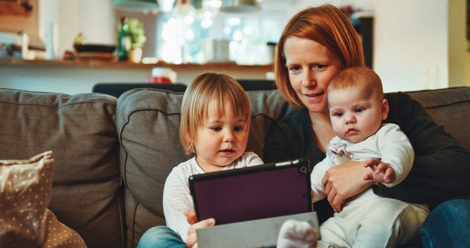
Why, as a Parent, I’m Finally Starting to Read YA
I was never a YA reader. Not when my mom was a YA librarian. Not even when I was a young adult. Especially not then. If there was a little yellow and red sticker on the spine of a book my mother suggested, I rolled my eyes and made that noise for which 13 year-olds are famous. Then I checked out a book about thousand-year-old elves.
I didn’t want to read about young adults because I hated being one.
I’m now a parent in my late 30s and I’m finally picking up YA. It helps me — more than any other genre — remember what it’s like to be a kid. Even better, YA literature helps conquer my constant anxiety about parenting.
Admitting I’m an adult kind of sucks
Back before my son was born, I thought of myself as the cool grown-up who is a child at heart. But I now live with a child, and he is a daily reminder that I am not one.
My need to keep my three-year-old alive, healthy, and mostly clean has made me less fun than I’ve ever been. I have rules now and I have to repeat them constantly. And anything you repeat constantly sort of becomes part of your personality.
I am now the living embodiment of those rules. I am the patron saint of “Don’t Touch the Stove.” I am the avatar of “Hold My Hand in the Parking Lot.” I am the goddess of “Get Down From There.”
The rules are meant to keep him safe, but they’ve made me a boring, responsible adult. I have never been so far from a child’s mindset as I am right now. I wouldn’t last one day in Never Never Land.
I don’t like this, but YA helps. Even more than children’s books (which are written by adults who often have small children) YA reminds me of how kids think. Not just my kids, but lots of kids, at differnet ages. And more importantly, it reminds me of how I used to think, which helps a lot.
What kids want
Can we talk about helicoptering for a sec? I swear this is going to get back to YA.
Helicopter parenting is a real issue, and so is society’s obsession with it. We condemn helicoptering while also demanding that parents constantly hover over their children or be arrested.
Parents are, from the very first time we plug in the baby monitor, set up to spy on our kids. A little of that is fine — it’s normal to worry about our kids and there’s a lot to worry about — but that hovering becomes its own danger.
Despite the fact that my best, most exciting memories of childhood tend to be the ones my parents weren’t involved in, I fight the urge to loom over my child at all times. I worry even more about what might befall him in the future, when he’s bigger and has more freedom to make decisions.
YA stories — fiction about a time when kids are seeking agency in their own lives — has been a powerful antidote to this barrage of worries.
The heroes do make mistakes. They make bad choices, and bad things happen to them, but they’re also smart enough, or kind enough, or brave enough to do the right thing —the hard thing — when it counts most. And they do it without parental guidance and often, in spite of their parents.
YA reminds me that kids yearn to explore. Danger is a real thing and as parents it’s our job to protect our kids, but not over-protect them.
I mean, I know my 3-year-old isn’t Hermione, but if she could save everyone at Hogwarts each year of her academic career while keeping her grades up and without any parental guidance at all, maybe I can let my kid play on the slide without constantly getting in his face.
Parents in YA are often great examples of what not to do
At least half of the YA moms and dads I’ve read are terrible, awful human beings. The Protector in JY Yang’s The Black Tides of Heaven? She’s the worst mom ever until you meet the parents in Seanan McGuire’s Down Among the Sticks and Bones.
In fact, McGuire’s whole Wayward Children series is filled with grown-ups, some malicious and some well-intentioned, who simply can’t do right by their kids. Even the one “cool” adult, who knows what the kids have been through, makes mistakes with them.
Dude, even awesome YA parents, like Mr. Murray in A Wrinkle in Time, make bad choices and aren’t the heroes their kids want him to be. Those unhelpful adults have been instructive.
YA stories show young adults who are learning to be their own heroes, that grown-ups are fallible at best. That’s valuable for a kid, but it’s also valuable for a parent.
We parents sometimes try to be everything to our kids (which we can’t and shouldn’t be) and we try to perfect (which isn’t possible) but ultimately we also have to remember that we’re only human.
It’s helpful, and weirdly comforting, to know that I’m likely to fail my kid in some way by the time he hits adulthood. The only thing I can do as a parent is teach him as well as I can now, so that he can make the smart, kind, brave choices when he starts having adventures that don’t include me.





